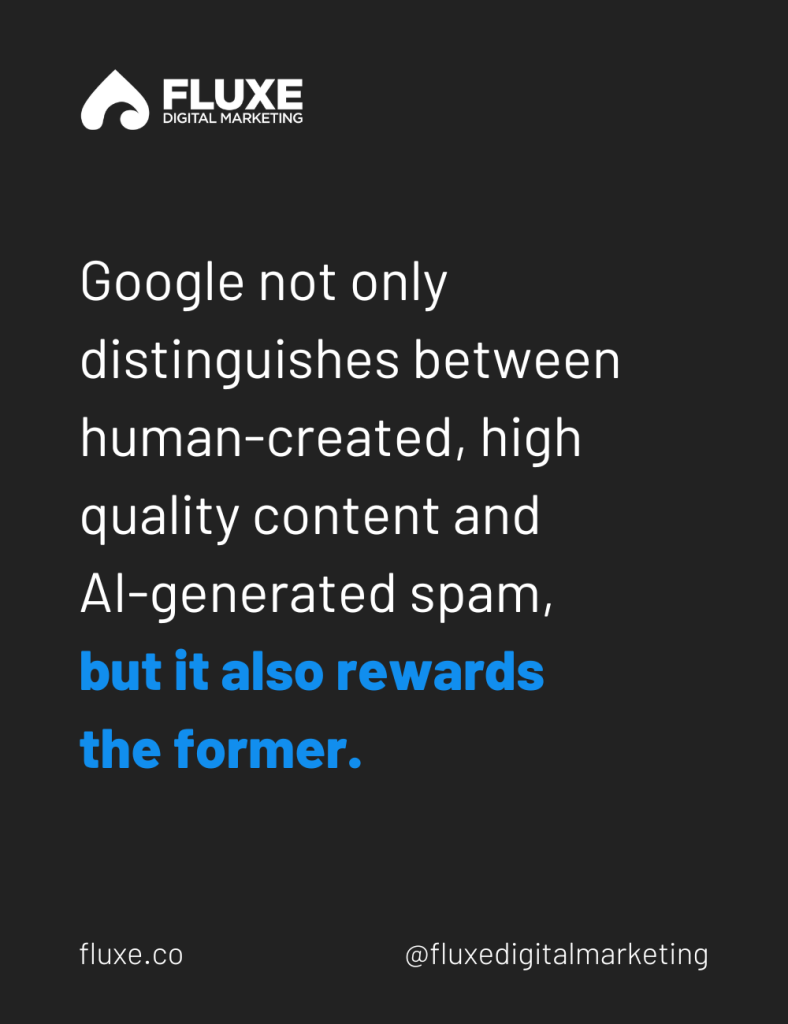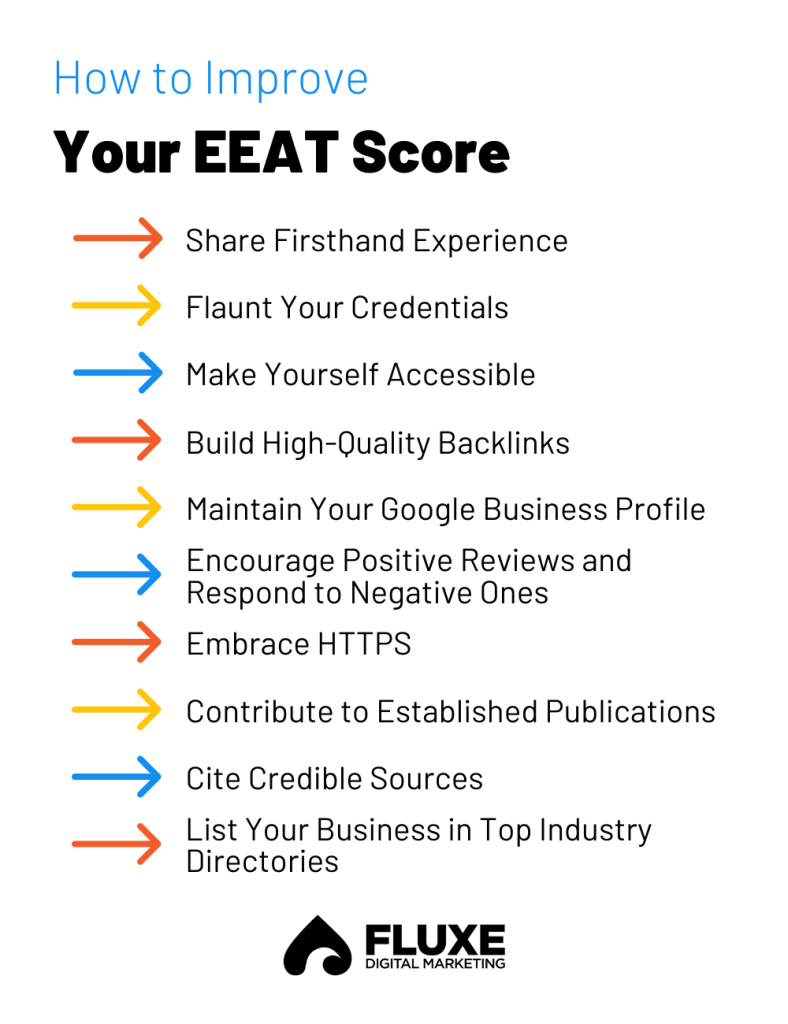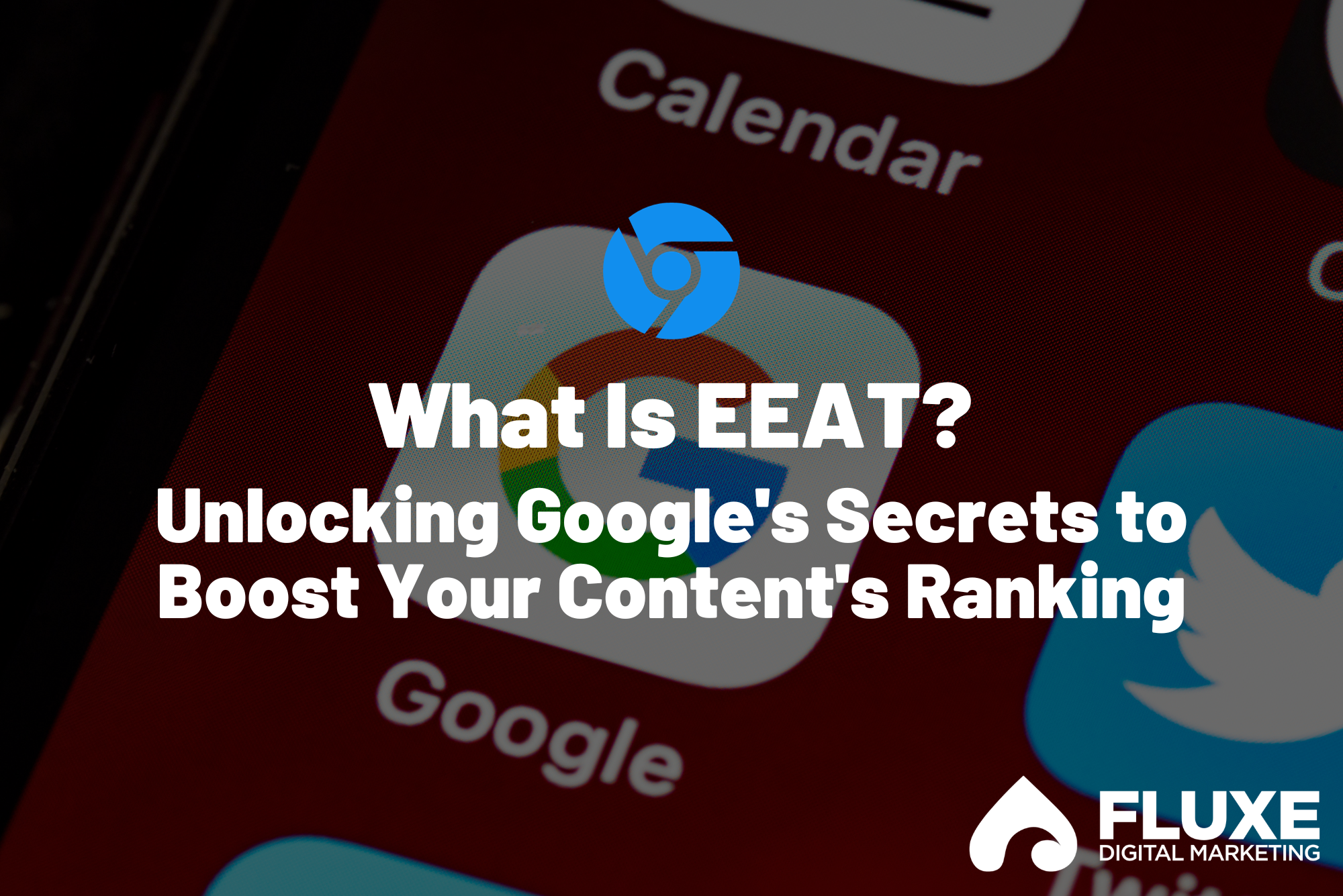Welcome to Planet Earth circa 2023, where content can be generated in seconds using artificial intelligence.
Sure, it’s not very good content. But the sheer quantity of videos, blog posts, newsletters, etc. flooding the internet is now beyond anything we could have imagined before ChatGPT.
Does this mean living, breathing human content creators are done for?
Not at all. Google not only distinguishes between human-created, high-quality content and AI-generated spam, but it also rewards the former using a system known as EEAT.

What Is EEAT?
The acronym EEAT (formerly EAT) stands for:
- Experience: Does the content demonstrate a certain degree of lived experience relating to the product or service being promoted? (Google added this word in late 2022 to fight the rise of AI-generated content.)
- Expertise: Did an expert create the content?
- Authoritativeness: Does the author have authority in this niche or industry?
- Trustworthiness: How secure and trustworthy is the site that published the content?
Google’s algorithm looks for these four qualities when deciding what web pages get a spot on the first page of the SERPs (search engine results pages).
EEAT plays such a key role in Google’s Search Quality Evaluator Guidelines that it’s mentioned 126 times throughout the entire document. (We counted.)
In What Niches Is EEAT Especially Important?
EEAT is especially important for any niche that impacts people’s finances or their well-being. Google dubs these niches YMYL, which stands for “your money or your life.” Examples include healthcare, finance, and home security.
If you’re in a YMYL niche, your EEAT score must be high. Otherwise, your site won’t appear on the first page of the SERPs, you won’t attract new, high-quality leads, and your content marketing efforts will fail.

How Can You Improve Your EEAT Score?
How can you conquer the SERPs so your content shows up before your competitors’? Make it as clear as possible to the search engine that your content has a high EEAT. Here are 10 practical methods.
- Share Firsthand Experience: When crafting your content, draw from your own knowledge and expertise. Real stories, case studies, and personal insights establish your business as a credible source for interested searchers.
- Flaunt Your Credentials: Don’t be shy about showcasing your qualifications. Include a compelling author bio with all your credentials, certifications, and accomplishments. Your audience (and Google) will feel more at ease knowing they’re getting advice from an expert.
- Make Yourself Accessible. Transparency builds trust. Ensure your contact information is prominently displayed on your website. Let your audience know you’re open to their questions and concerns.
- Build High-Quality Backlinks: When it comes to backlinks, quality dominates quantity. Build links on reputable websites in your industry that go to your site when clicked. In Google’s eyes, these links act like endorsements, boosting your content’s credibility.
- Maintain Your Google Business Profile: A well-maintained Google Business Profile supports your legitimacy. Keep it up-to-date with accurate information, and engage with reviews to demonstrate your commitment to customer satisfaction.
- Encourage Positive Reviews and Respond to Negative Ones: Positive reviews establish trust, and how you respond to negative reviews demonstrates your commitment to customer satisfaction. Encourage happy customers to leave reviews and proactively address negative feedback both on- and off-site.
- Embrace HTTPS: Security is essential, so make sure your website has an HTTPS connection. This simple step not only boosts trust but also positively impacts your SEO rankings.
- Contribute to Established Publications: Writing for other reputable publications in your industry showcases your expertise. It also earns you valuable backlinks that bolster your site’s perceived authority through the endorsement principle mentioned above.
- Cite Credible Sources: Supporting your claims with data from trustworthy sources strengthens your content’s credibility. Your readers (and Google) will appreciate the extra effort you put into providing reliable information.
- List Your Business in Top Industry Directories: This not only boosts your online visibility but also contributes to your overall EEAT score.
Google EEAT: Final Thoughts
Robots haven’t conquered the world just yet. Human content creators still reign supreme on Google, meaning you can keep your marketing team on the payroll. Just make sure your content reflects your experience, expertise, authoritativeness, and trustworthiness.
If you’d like help creating content that aligns with EEAT and earns your business high-quality leads, our team of (human) marketing experts is happy to collaborate with you. Reach out when you’re ready.



